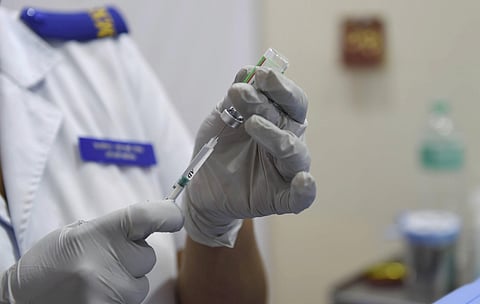

WASHINGTON: The breast milk of lactating mothers who have received the COVID-19 vaccine contains a significant supply of antibodies that may help protect nursing infants from the illness, according to a study.
The research, published in the journal Breastfeeding Medicine, strongly suggests that vaccines can help protect both mother and baby, another compelling reason for pregnant or lactating women to get immunised.
"Our findings show that vaccination results in a significant increase in antibodies against SARS-CoV-2 in breast milk, suggesting that vaccinated mothers can pass on this immunity to their babies," said Joseph Larkin, a senior study author, and an associate professor at the University of Florida, US.
The researchers noted that when babies are born, their immune systems are underdeveloped, making it hard for them to fight infections on their own.
They are also often too young to respond adequately to certain types of vaccines, they said.
"During this vulnerable period, breast milk allows nursing mothers to provide infants with 'passive immunity'," said Josef Neu, study's co-author and a professor at the University of Florida.
"Think of breast milk as a toolbox full of all the different tools that help prepare the infant for life. Vaccination adds another tool to the toolbox, one that has the potential to be especially good at preventing COVID-19 illness," Neu explained.
The study was conducted between December 2020 and March 2021, when the Pfizer and Moderna COVID-19 vaccines first became available to health care workers in the US.
The researchers recruited 21 lactating health care workers who had never contracted COVID-19.
They sampled the mothers' breast milk and blood three times: before vaccination, after the first dose and after the second dose.
"We saw a robust antibody response in blood and breast milk after the second dose -- about a hundred-fold increase compared with levels before vaccination," said Lauren Stafford, a doctoral student in Larkin's lab.
"These levels are also higher than those observed after natural infection with the virus," added Vivian Valcarce, from the University of Florida. Vaccinating mothers to protect babies is nothing new," Valcarce said. "Typically, expectant mothers are vaccinated against whooping cough and flu because these can be serious illnesses for infants.
Babies can also catch COVID-19, so routine vaccination of mothers against the virus could be something we see in the future," he said.
The team is continuing to explore how breast milk containing COVID-19 antibodies gained through vaccination protects babies who consume it.
"We would like to know if infants who consume breast milk containing these antibodies develop their own protection against COVID-19," Larkin said.
The researchers said many other simultaneous studies conducted around the world also show antibodies in the breastmilk of vaccinated mothers.
"That means our study validates a growing body of evidence," Neu added.